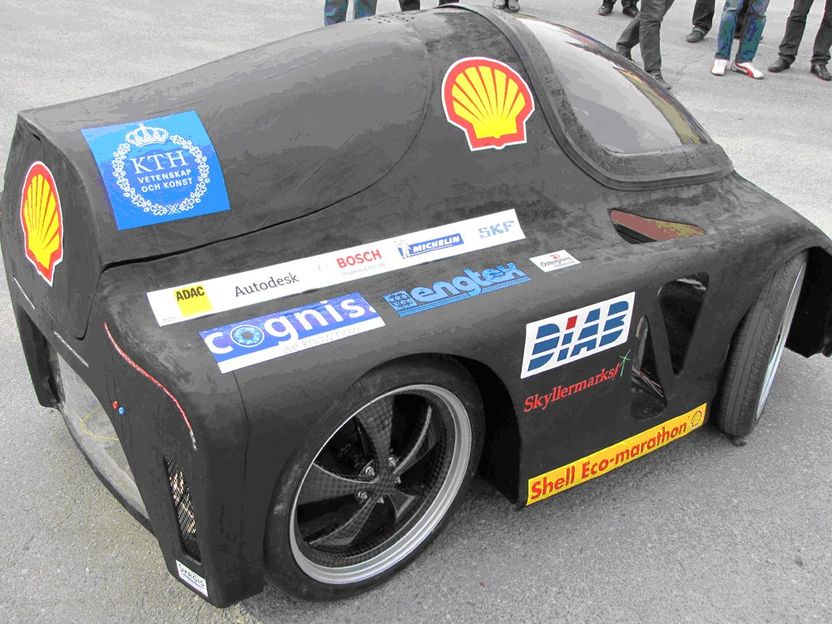“Green” solutions in the fast lane: Cognis’ Tribest resin in a bio-based urban hybrid concept car for Shell Eco-marathon
Advertisement
A student project team at the Royal Institute of Technology (KTH) in Stockholm, Sweden built a racing car incorporating the one-component resin system Tribest from global specialty chemicals supplier Cognis. This environmentally sound product is part of the body of the bio-based urban hybrid concept car that is entering in the Shell Eco-marathon, scheduled to take place at the EuroSpeedway Lausitz racetrack in Germany.

Cognis
Cognis’ Tribest is a patented resin used to make matrices for composite materials. It is based on renewable raw materials (acrylate functional resin system derived from soya oil). The KTH Eco Cars student project team built the car body out of Tribest and hemp fibers. Their car will compete in this year’s Shell Eco-marathon which focuses on finding innovative solutions for building sustainable cars.
Called Aurora, the bio-based urban hybrid concept car uses eco-friendly technology through and through. Not only is the car powered by a fuel-efficient hybrid drive line, its very core will be made out of bio-based materials. Says Per Wennhage, assistant professor at KTH: “This means that the manufacturing process uses less energy and resources, so reducing the car’s overall impact on the environment. Tribest showed good wetting properties in combination with the hemp when building the body, and because it is styrene-free, it was really convenient to use.”
Adds Robert Sandell, the student in charge of the project: “We used the Cognis product, because it is based on renewable raw materials and suitable for natural composites. As such, it fits perfectly with the ethos of the Shell Eco-marathon. We have also entered the Eco Design Award. This is given to the team whose design is not only fuel-efficient, but also makes use of recycled and/or eco-friendly materials in the vehicle and production process.”
The Shell Eco-marathon began in 1939 at a Shell research laboratory in the USA, as a friendly wager between scientists to see who could get the most miles per gallon from their vehicles. The basic principle of the competition remained the same: to design and build a vehicle that uses the least amount of fuel to travel the longest distance. It now provides an annual global forum for students who are passionate about finding sustainable solutions to the world’s energy challenges. In this year’s Shell Eco-marathon in Germany, Aurora will be competing in the UrbanConcept class. This category includes more practically viable vehicles that meet the actual needs of today’s drivers.





























































